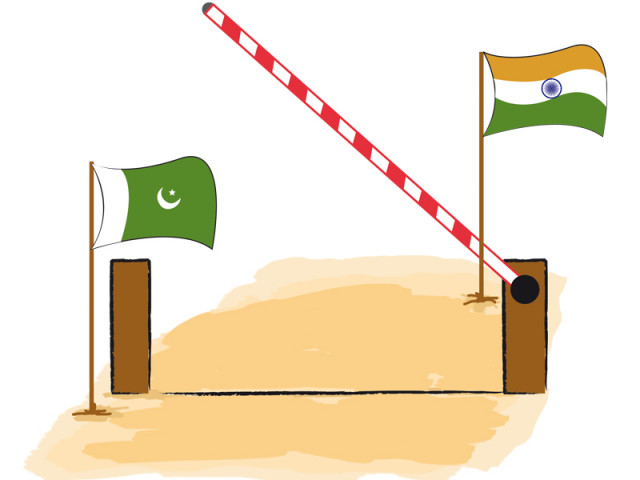Impose duties on Indian products, demand farmers
Say they are unable to compete with subsidised farm goods.

With huge subsidies, which Indian farmers are enjoying, it will be near impossible for Pakistan farmers to compete. ILLUSTRATION: TALHA AHMED KHAN
“This is a matter of livelihood of more than 60% of the country’s rural population, which is being neglected for the last 66 years,” said Khalid Khokhar, President of Pakistan Kissan Ittehad, while talking to a group of journalists on Thursday.
With huge subsidies, which Indian farmers are enjoying, it will be near impossible for Pakistan farmers to compete. “We demand a proper duty structure for Indian agriculture products, else we will block the Wagah border as thousands of farmers are already frustrated with recent developments,” he said.
According to the farmers’ lobby, all matters are being controlled by the Ministry of Commerce, while the agriculture department is out of the loop. The ministry was only interested in increasing trade and revenues and was least bothered about the core issues afflicting the farmers, they said.
“We fear that the government is going to accept and sign an agreement with India without taking stakeholders from the agriculture sector on board,” said Dr Tariq Bucha, President of Farmers Associates Pakistan.
He pointed to the constitution of a task force under the Pak-India Joint Business Forum for addressing the farmer issues. Seven members from each side participated in its meetings and agreed on three major steps.
First, a separate bilateral trade agreement will be signed to cover agriculture products, for which a draft is currently being prepared. According to the draft, in the beginning only those crops should be traded which are not cultivated in any of the two countries, like pineapple and soyabean.
Second, trade of those products should be allowed which can be adjusted in seasonal windows, like mangoes and oranges. The last step was pertaining to a trigger mechanism based on price fluctuation.
Bucha expressed fear that like other major issues, which Pakistan had failed to address, the government might also not be able to tackle this trade issue. “Indian elections are approaching and the expected prime minister’s sentiments about Muslims are well known. If the new government decides to amend the bilateral trade agreements, then what would our government do,” he asked.
Published in The Express Tribune, February 21st, 2014.
Like Business on Facebook, follow @TribuneBiz on Twitter to stay informed and join in the conversation.



















COMMENTS
Comments are moderated and generally will be posted if they are on-topic and not abusive.
For more information, please see our Comments FAQ